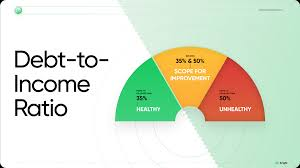
Your Debt-to-Income (DTI) ratio is a key financial metric that measures how much of your monthly income goes toward paying debts. Unlike credit utilization, which focuses on credit card limits and balances, DTI considers all monthly debts, including loans, mortgages, and credit cards, relative to your gross income. Here’s how to calculate it: divide your total monthly debt payments by your gross monthly income, then multiply by 100 to get a percentage.
For instance, if you earn $5,000 monthly and pay $1,500 toward debts, your DTI is 30%. A low DTI indicates that you have more income available after debt payments, which lenders generally view as a sign of financial stability.
How Credit Bureaus and Lenders Use DTI
Credit bureaus do not directly factor your DTI ratio into your credit score; however, it’s essential to lenders and creditors. When evaluating loan applications, lenders often use your DTI as a measure of how much additional debt you can manage responsibly. A high DTI may suggest that a borrower is overextended and may struggle with future payments, making it less likely they’ll be approved for new credit or favorable loan terms.
DTI Scales and What They Mean
- Excellent (0-20%): A DTI of 20% or less is considered excellent, as it shows you’re using a small portion of your income for debt payments, indicating strong financial health and high creditworthiness.
- Good (21-35%): In this range, you’re still in a good position. A DTI under 35% is usually considered manageable, showing lenders you have room in your budget for potential new debt.
- Fair (36-49%): This range is a bit high, as more than a third of your income goes to debt payments. Lenders might see you as a moderate risk, and approval for new loans could become challenging.
- Poor (50% and above): A DTI over 50% suggests you’re using over half your income on debt, signaling a high dependency on credit. This level of debt can make loan approval difficult and may prompt lenders to deny applications.
Monitoring your DTI and keeping it as low as possible can improve your chances for credit approval, better loan terms, and a stronger overall financial outlook.
